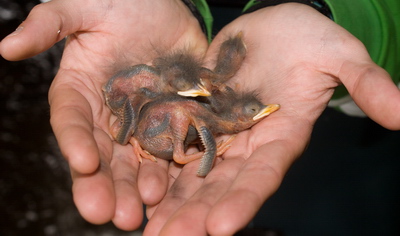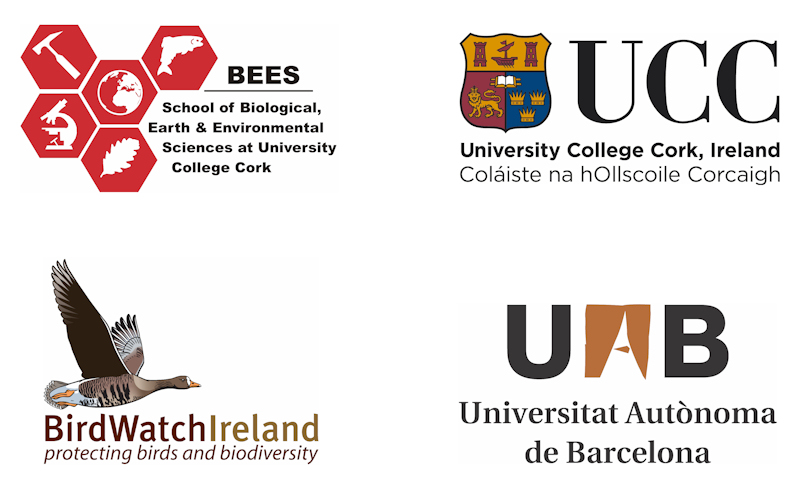In This Section
Dipper Ecology Project
As a consequence of their close association to riparian ecosystems, Dippers are considered a good bioindicator species (species whose function, populations, or status are useful for monitoring environmental health). Changes in environmental variables thus have the potential to affect breeding rates of Dipper pairs and ultimately to cause changes to Dipper population dynamics. In the current context of human-caused environmental changes, our research focuses on disentangling the effects of global change factors such as climate change (e.g. warmer temperatures, increased winter rainfall and floods), pollution (changes in water quality), habitat modification (e.g. cannalization of rivers, construction of dams), and changes in land-use (e.g. agricultural intensification in catchments with Dipper populations). For this study the project will take advantage of data from long-term monitoring of Dipper populations and will also use new research approaches to evaluate the physiological response of individual birds to environmental changes.
Long-term monitoring of Dipper populations has been carried out by in the southwest of Ireland (Co. Cork and Waterford) by Pat Smiddy, Barry O’Mahony and Prof. John O’Halloran (University College Cork) and in the Slieve Blooms (Co. Offaly and Laois) by Dr. Alex Copland (BirdWatch Ireland). This work entails locating active Dipper nests each spring, which are then monitored to determine how many chicks fledge from each nest. As part of the project, chicks are fitted with standard BTO metal rings which make it possible to identify birds individually in following years. This work provides valuable information on dispersal and survival of birds, but also on population trends throughout the study period.

Five day old Irish Dipper chicks. Photo: Darío Fernández-Bellon, under licence from NPWS.
As part of a recently established collaboration with the Autonomous University of Barcelona, the project will also evaluate how differences in environmental factors between catchments (such as land use, habitat quality or water chemistry) affect Dippers. This will involve assessing differences in physiological parameters between birds occupying different catchments.
For further information, please contact Darío Fernández-Bellon (dfernandezbellon@ucc.ie).
Project funders and collaborators:

Darío Fernández-Bellon
Contact us
School of Biological, Earth & Environmental Sciences, Enterprise Centre, Distillery Fields, North Mall, Cork.
